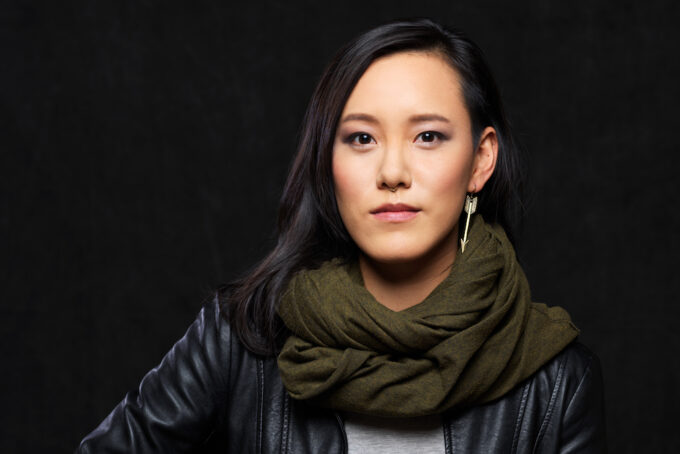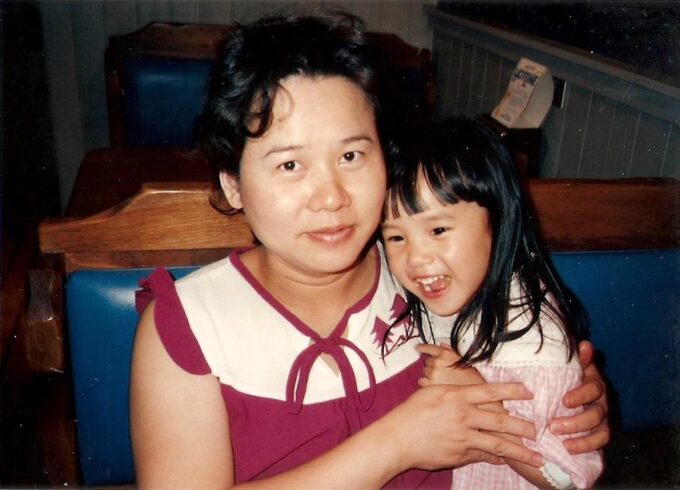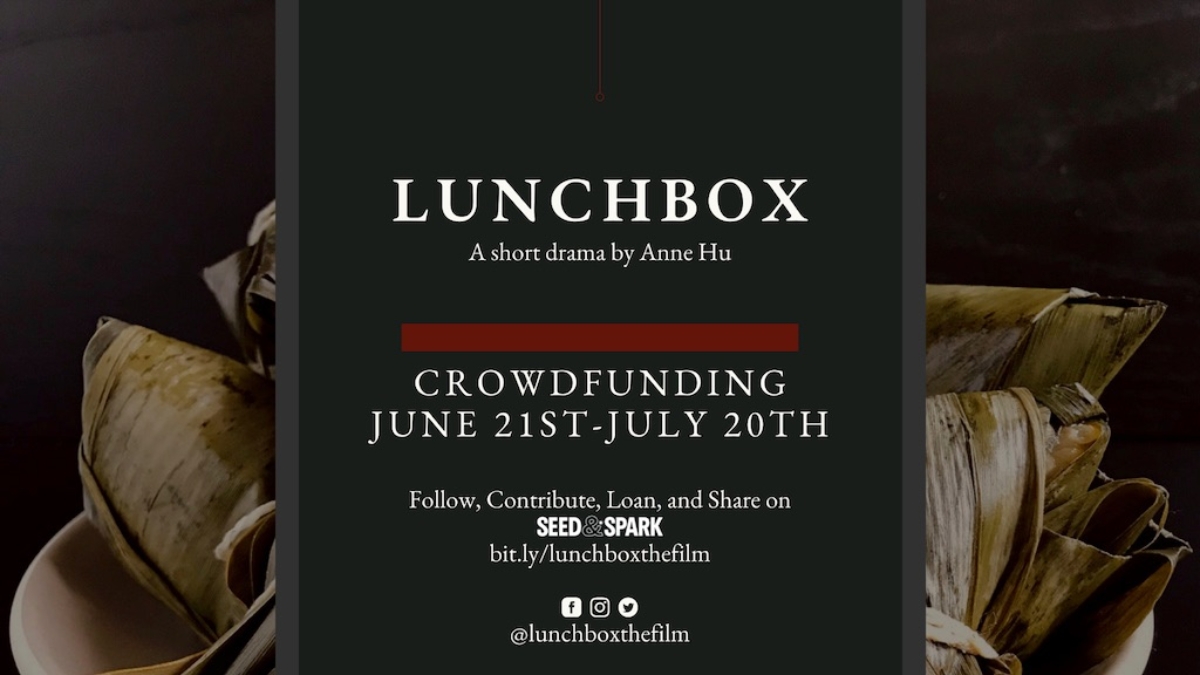Written By: Aditya Sharma
If you are the child of immigrants who grew up in the United States, odds are you have experienced a lunchbox moment. Odds are that the food you brought looks, smells and tastes different (read: better). But the feeling of being an outsider, being teased for the food of your family, is one so unfortunately universal among immigrant kids. For many, that feeling grew into a sort of resentment towards your family or your culture for being the reason you couldn’t fit in.
Director Anne Hu, a first generation Asian American raised in Cleveland, explores that feeling in her upcoming short film “Lunchbox,” which follows a Taiwanese American who prepares lunches from her childhood and struggles to forgive herself for pushing her immigrant mother away.
I sat down for a virtual chat with Hu about “Lunchbox” last month.
Disclaimer: Parts of this interview have been condensed for brevity.

The Lunchbox Moment is one that so many children of immigrants experience. Tell me a little bit about the impetus for the film and why you felt the need to tell this story now.
I wrote it in 2017, so it’s been a while now. I was scrolling on Facebook and a video popped up called the Lunchbox moment. I know a lot of children of immigrants are familiar with that moment. In this video they were interviewing all these Asian American adults who as kids brought their foreign lunches to school and they were talking about how they were made fun of or bullied for bringing their “stinky lunches” to school, and how they grew up really self conscious about how they were different. And now as adults they are so proud of their culture, proud of their food, and most of all their parents.
At the end of the video, everybody in the video got to hug their parents and got to apologize for how much they took for granted from them in the past. I just started balling because my mom passed away when I was 20, and so I don’t get to have that experience with her. I was literally crying and I opened up my laptop, and out came this first draft of “Lunchbox.” It was just a really emotional experience and that’s what came out. There have definitely been revisions of the script since then but the core of it is still what I wrote that night.
Then growing up and realizing there’s sort of a deep irony in the fact that, especially if you live in a place like New York or Los Angeles, a lot of those same people from the lunch table are going to “hip” Asian restaurants and you think “Where was this twenty years ago?”
Oh my goodness I know.
Was that feeling something you hoped to explore from the beginning? It strikes me that the food is a stand-in for one’s relationship to their own culture, which is something that a lot of people, particularly children of immigrants, have to grapple with.
I feel like the idea of using food as a device for connecting across generations came about when I sat down and wrote the film. But I would say the larger picture of wanting to reconnect with my heritage, whether it be through food or through filmmaking quite frankly, I think that’s been a career-long journey. Better understanding myself and my Taiwanese American identity, what it means to be a Taiwanese American woman, that’s continually evolving and I hope it continues to evolve as I continue to make work.
You have an all Asian American female team working on this project. What do you see as the value of having them in more technical and producorial positions? Do you feel like their experience was able to inform the project when the camera’s weren’t rolling?
I didn’t purposefully set out to have an all Asian American female producing team. We interviewed people of all races and sexes and they were honestly just the best fit for the project because of their skillset, their experience and their scheduling.
It was, however, important to me to have at least one Asian American producer or to have Asian Americans in some of the lead team positions. I did not want it to be just me. Working with a team of people who have a shared experience is definitely helpful, especially when it comes to issues that arise that are very sensitive. There is a scene in my short where one of the characters gets called a racial slur, and these are kids in this scene. We had an in-depth discussion about how to make sure our actors felt safe when shooting that scene. Would that have happened if it was with people of different races or all white? I’m not sure. It’s definitely possible.
Because we all had these shared experiences of being the other, I think we all approached this project knowing that and being sensitive to that. All the decisions we were making and in all the ways we are treating everyone who is working on this, we are approaching it with that sensitivity and that emphasis on wanting this to be a safe and inclusive set that really celebrates where we all come from….
I would say in the broader picture I think it’s extremely important to have representation behind the camera. There is definitely a bamboo ceiling in the industry. There are too many people in those big decision making positions who do not look like us, and the only way we can get to those positions is to have more people working behind the camera and to create more opportunities for people to eventually get into leadership positions where they get to choose which stories we are telling.
In terms of other roles like editing, why shouldn’t we be in those positions, you know? I think we all, with our own lived experiences, bring stuff to the things that we make and the perspective that we bring in (not that we need to justify our perspective) is just as valid as somebody else’s.
I also was very careful to be mindful of different people’s backgrounds. For example there are a lot of filmmakers who went to film school. Film school is super expensive; I didn’t go to film school. So looking beyond just “did you go to film school or not?”, that’s not as important to me as showing me that you have a passion and a drive, and you have taste. Even if your film is not the most well-funded piece of work, I can tell that there is potential. That’s what’s more important.

Could you tell us about the experience of crowdfunding this film and about the role community organizations like Asian CineVision played in that process?
ACV (Asian CineVision) has been our fiscal sponsor and has been attached to the project for a few years now. They have been very helpful by informing us about a lot of grant opportunities to apply for and processing some individual contributions for us before we launched our crowdfunding campaign.
It was only until right before the pandemic that I felt like things were finally moving with “Lunchbox.” I think now there is extra momentum to tell AAPI stories because of all the unfortunate things that are happening in the world. It shouldn’t take that to make people feel like they need to see our stories. But I hope that this opens doors for more stories to be told, and that isn’t just a trend.
I don’t think the decision to crowdfund affected the creative work; the creative work came first. However, the amount of support and momentum that we had for this project has really taken me by surprise. The degree to which people are connecting to the story has been overwhelming. There have been a lot of donations from people that we don’t know. A lot of children of immigrants across different cultures have messaged us and contributed generously, and told us about how much they related to this story and appreciated that the story is being told. It’s been an amazing way to meet new people and hear their experiences.
This has been a lot of things for me. It’s a love letter to my mom. … I think a lot of the healing process is about connecting with other people who have similar experiences: People who either went through a lunchbox moment, or lost their parents, or didn’t have that understanding or appreciation of their heritage when they did lose their parents. It’s really powerful to be able to speak to people like that.
What’s next for you?
The next step from me is getting my first feature off the ground. I’m developing a few ideas that are too new to really discuss right now. But I’m trying to work on my first feature project when we’re knee deep in getting this thing started, but there are definitely feature projects on the way, and they are definitely Asian American oriented. Some of them take place in Cleveland too!
Stay up to date on Anne Hu’s upcoming projects by visiting her website, Twitter and Instagram. Support “Lunchbox” by donating or following the project on Twitter, Instagram and Facebook.

